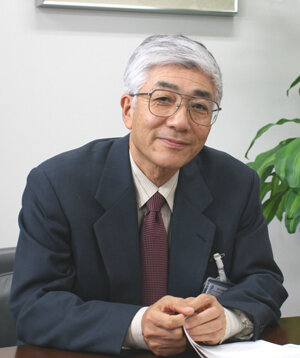 Distinguished immunologist Dr. Masaru Taniguchi passed away on April 8, 2024, at the age of 84. Dr. Taniguchi contributed greatly to the advancement of immunology and medical science, and, with his strong leadership, he also dedicated his career to the establishment of immunology centers at Chiba University and RIKEN. Here we look back on his lifelong challenges and accomplishments and wish for his repose.
Distinguished immunologist Dr. Masaru Taniguchi passed away on April 8, 2024, at the age of 84. Dr. Taniguchi contributed greatly to the advancement of immunology and medical science, and, with his strong leadership, he also dedicated his career to the establishment of immunology centers at Chiba University and RIKEN. Here we look back on his lifelong challenges and accomplishments and wish for his repose.
Dr. Taniguchi was born in Nagaoka, Niigata Prefecture on December 2, 1940. From Niigata Senior High School, he entered Chiba University School of Medicine and graduated in March 1967. After clinical training in internal medicine, he completed his graduate studies and obtained a Ph.D. in March 1974 in the Department of Pathology, Chiba University School of Medicine in the laboratory of Prof. Atsushi Okabayashi. He continued his research under Dr. Tomio Tada at Chiba University School of Medicine and Dr. Jacques Miller at the Walter and Eliza Hall Institute in Melbourne, Australia. In August 1980, he was appointed Professor at Chiba University School of Medicine, where he conducted highly impactful immunological research. In July 2001, he became the founding director of the RIKEN Research Center for Allergy and Immunology (RCAI), a position he held until March 2013. In April 2013, RCAI was reorganized and renamed the RIKEN Research Center for Integrative Medical Sciences (IMS). He served there as a laboratory Team Leader and an IMS Honorary Research Fellow. He continued his research with strong passion. His death came too soon to fulfill the many goals he still wished to achieve.
Dr. Taniguchi's research came into prominence in the 1970s with the discovery, with Dr. Tomio Tada and others, of an immunosuppression phenomenon. Dr. Taniguchi successfully demonstrated that some T lymphocytes had immunosuppressive functions and he tirelessly continued his research to elucidate the cellular characteristics and molecular mechanisms responsible for the immunosuppressive regulation. After 20 years of endeavor, he identified natural killer T cells (NKT cells), a subset of T lymphocytes with immunoregulatory functions. The discovery of NKT cells had a huge impact at that time and opened a new field in immunology research. In particular, his finding that immune rejection of cancers could be induced by NKT cell activation had a significant impact on basic cancer immunology research and clinical cancer immunotherapy research. The discovery of NKT cells and their clinical application could be accomplished by Dr. Taniguchi because of the unceasing pursuit of his central research theme and goals, without pandering to any fleeting research trends. The research field that Dr. Taniguchi pioneered has been taken up by other researchers in the world and continues to expand.
Dr. Taniguchi also demonstrated outstanding leadership in the management of research organizations. He always challenged Japan's rigid practices in medical research and research systems. He was a pioneer of university reforms in Japan. He established the Center for Neurobiology and Molecular Immunology in the Chiba University Faculty of Medicine, introduced an external review system, and reorganized the graduate school system. Later, he established RCAI in RIKEN, which has become an internationally recognized and highly competitive research organization. He had the innovative idea to expand immunology research by integrating it with biology, chemistry, basic and clinical medicine, engineering, informatics, mathematics, and other fields to develop a broad, multilayered integrated research program. His significant contributions are widely recognized not only in Japan but also internationally. Dr. Taniguchi was always astute at cutting-edge organizational management but, at the same time, harmonizing the system to promote the long-term development of young researchers. To achieve this, he launched a variety of challenging but flexible measures and created new programs and systems. As a result, he nurtured many excellent researchers who are now leading the next generation.
Even right before his death, Dr. Taniguchi's focus was still on the future. He continued to take on challenges that were directed toward supporting young researchers for the future. His strong will continues to grow in the young people he nurtured and in the programs he created. Even now, using such systems, many young researchers are pioneering their research on the global stage. By realizing the weight of the baton that Dr. Taniguchi passed on to us and by sharing it with all of you for the future, we pray for Dr. Taniguchi to rest in peace.
